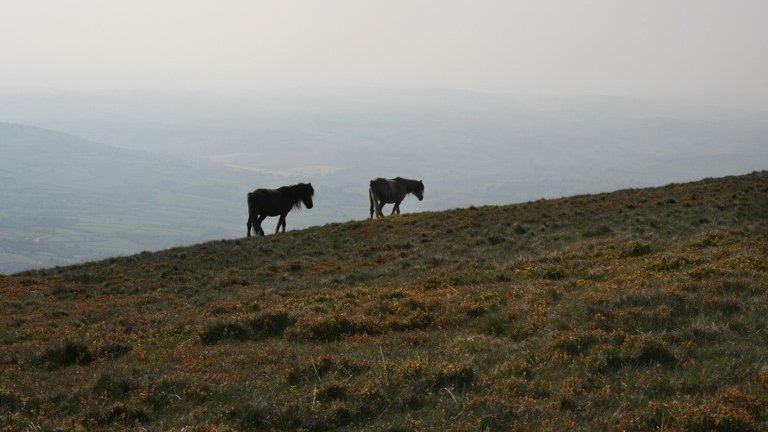National parks 'could lose status if report implemented'
- Published
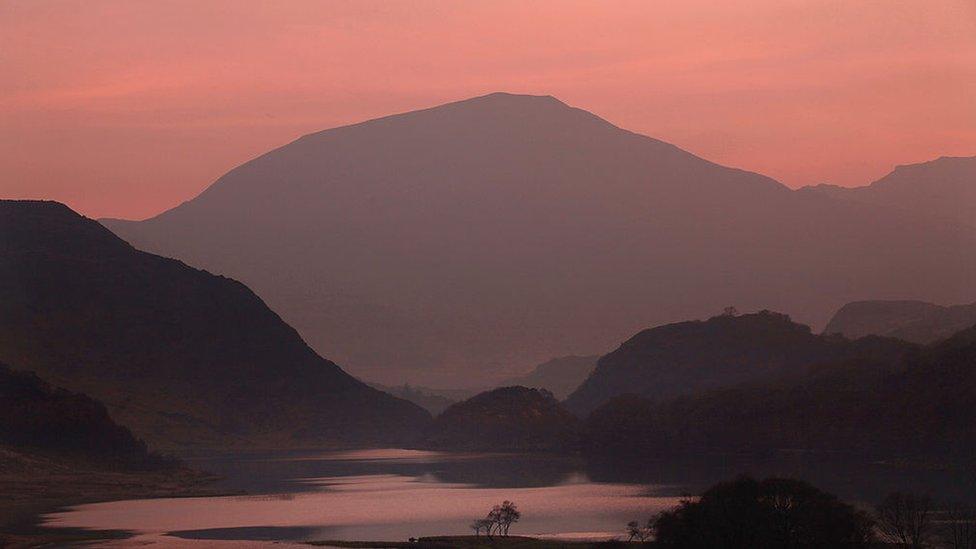
Wales' national parks could lose their status as internationally recognised protected areas if a Welsh Government review is implemented, a panel of experts has warned.
The UK assessment panel of the World Commission on Protected Areas said the Welsh Government's Future Landscapes report was a "step backwards".
The report had called for parks to take the lead in managing natural resources.
The Welsh Government said it would consider the comments.
Wales has five Areas of Outstanding Natural Beauty (AONBs) - Gower, Anglesey, Llyn, Wye Valley and Clwydian Range and Deeside.
Its national parks include Snowdonia, Brecon Beacons and Pembrokeshire Coast.
British AONBs and national parks are currently recognised as protected areas by the International Union for Conservation of Nature (IUCN), of which the commission is a part.
The panel, which is made up of experts in protected areas, said the conservation purpose of both types of areas was "hardly mentioned at all" by the report.
"If acted upon, the recommendations in the Future Landscapes report would make it impossible for the panel to continue to accord international recognition to Wales' [national parks] and AONBs as protected areas," the group said.
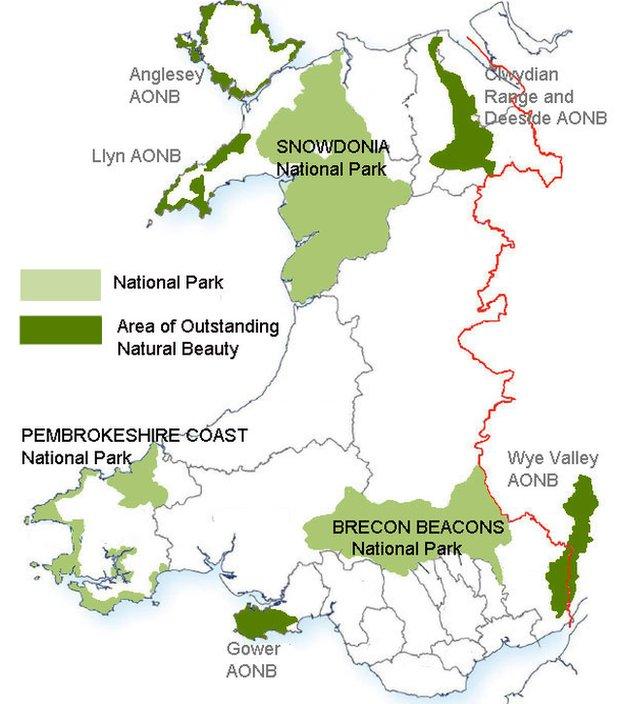
Adrian Phillips, a member of the panel and a former chief executive of the Countryside Commission, told BBC Wales there was no discussion in the report "of the purposes of protection, why do we have national parks, why do we have AONBs, how do we deal with the pressures on them, at all".
The Future Landscapes study, which was chaired by independent AM Lord Elis-Thomas, was set up to explore the findings an earlier review which called for national parks and areas of outstanding natural beauty (AONBs) to foster "far more vibrant rural communities".
'Big retreat'
In comments submitted to the Welsh government the panel said the new study was a "big retreat" from a previous review, which had been led by Prof Terry Marsden, and "misrepresents" or "misunderstands" the findings.
It claims that Mr Marsden's report's "strong environmental message" was "diluted" and failed to endorse his recommendation about the "primacy of conservation".
"The report is remarkable for referring only once in passing to the role that these places play, and could play better, in conserving biodiversity in Wales," the panel argued.
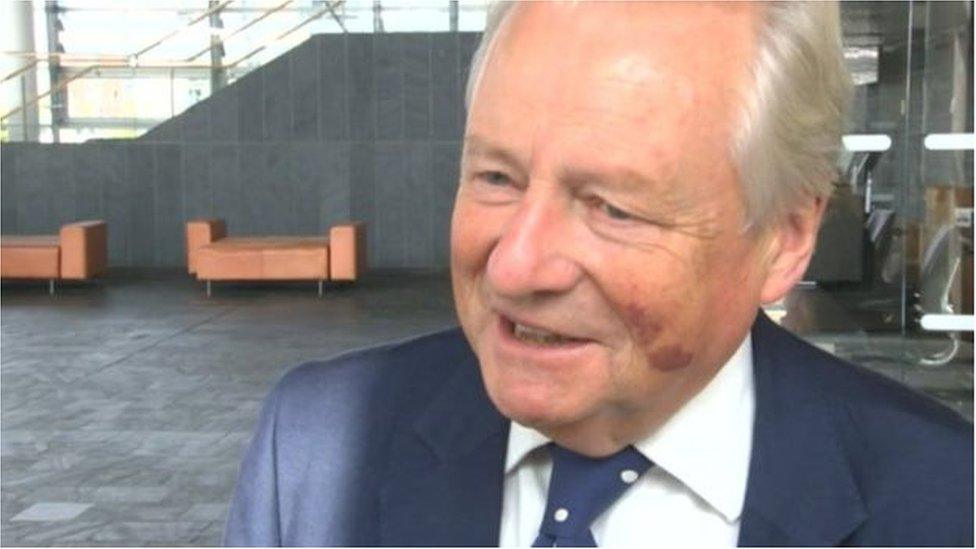
The working group which produced the future landscapes report was chaired by Dafydd Elis-Thomas
The panel was set up in 2012 to determine which areas in the UK meet international standards for protected areas.
Published by the IUCN, the standards state such areas should be clearly defined spaces designated "to achieve the long term conservation of nature".
'Very critical'
Welsh Conservative AM Janet Finch Saunders said: "These observations are very critical of the Future Landscapes report, and the Welsh Government needs to address the concerns of bodies such as the IUCN, which confer protected status on Wales' national parks.
"Conservation needs to be at the heart of the Welsh Governments plans - not just an afterthought."
The IUCN is not the first body to criticise the Future Landscapes report - a draft version had also prompted concern from conservationists.
A Welsh Government spokeswoman said: "We will consider the comments made by the UK Assessment Panel of the IUCN World Commission on Protected Areas.
"They will also be forwarded to the Future Landscapes Wales Chair, Lord Dafydd Elis-Thomas, and the wide range of stakeholders involved in the Future Landscapes Wales programme so they may consider them as part of their ongoing deliberations."
- Published9 May 2017

- Published28 March 2017
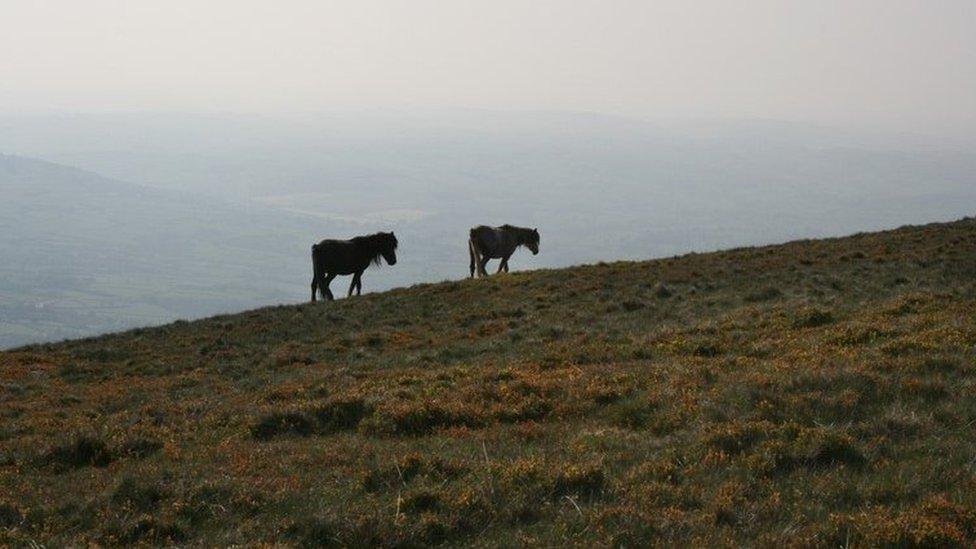
- Published30 October 2015
